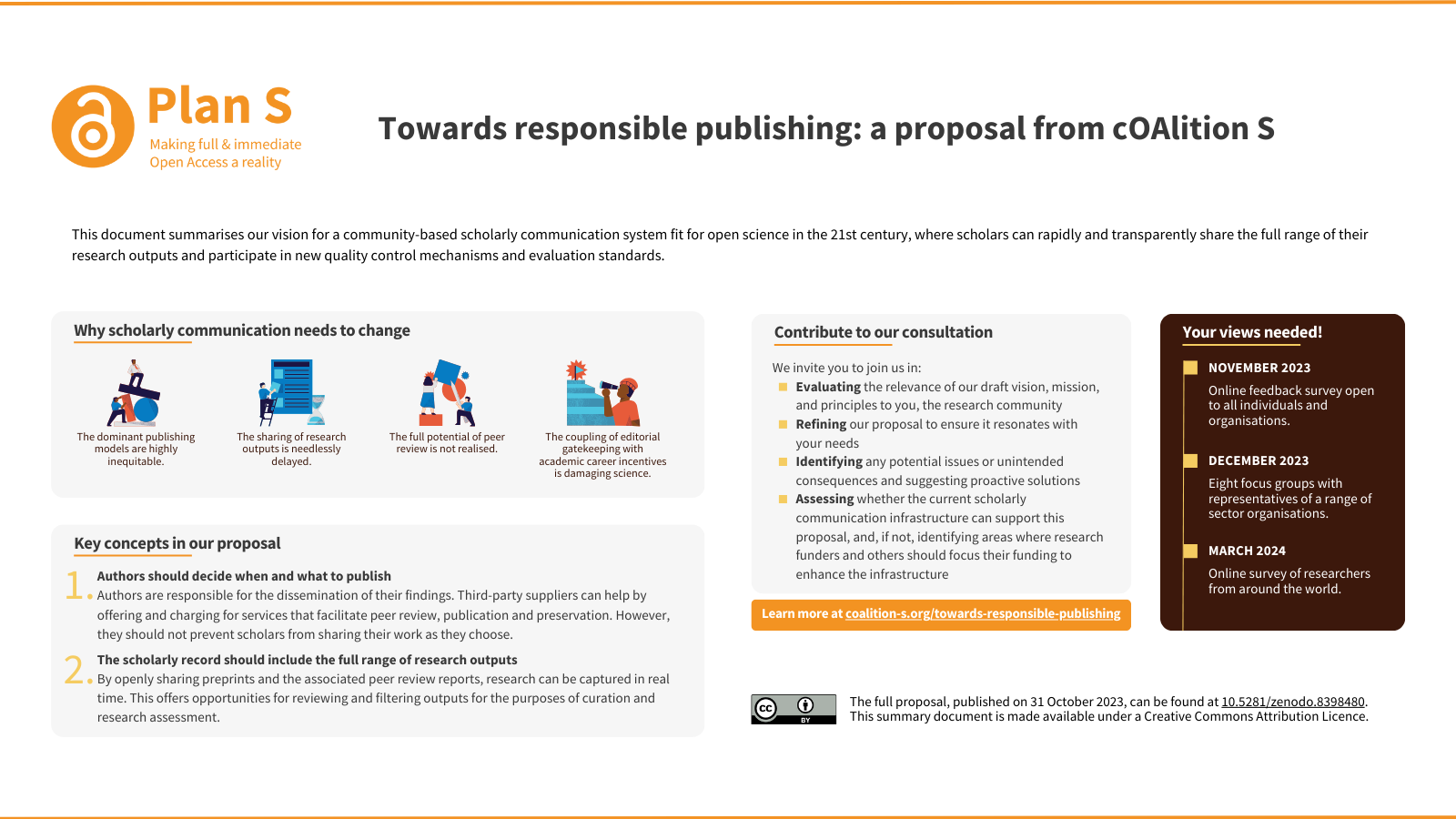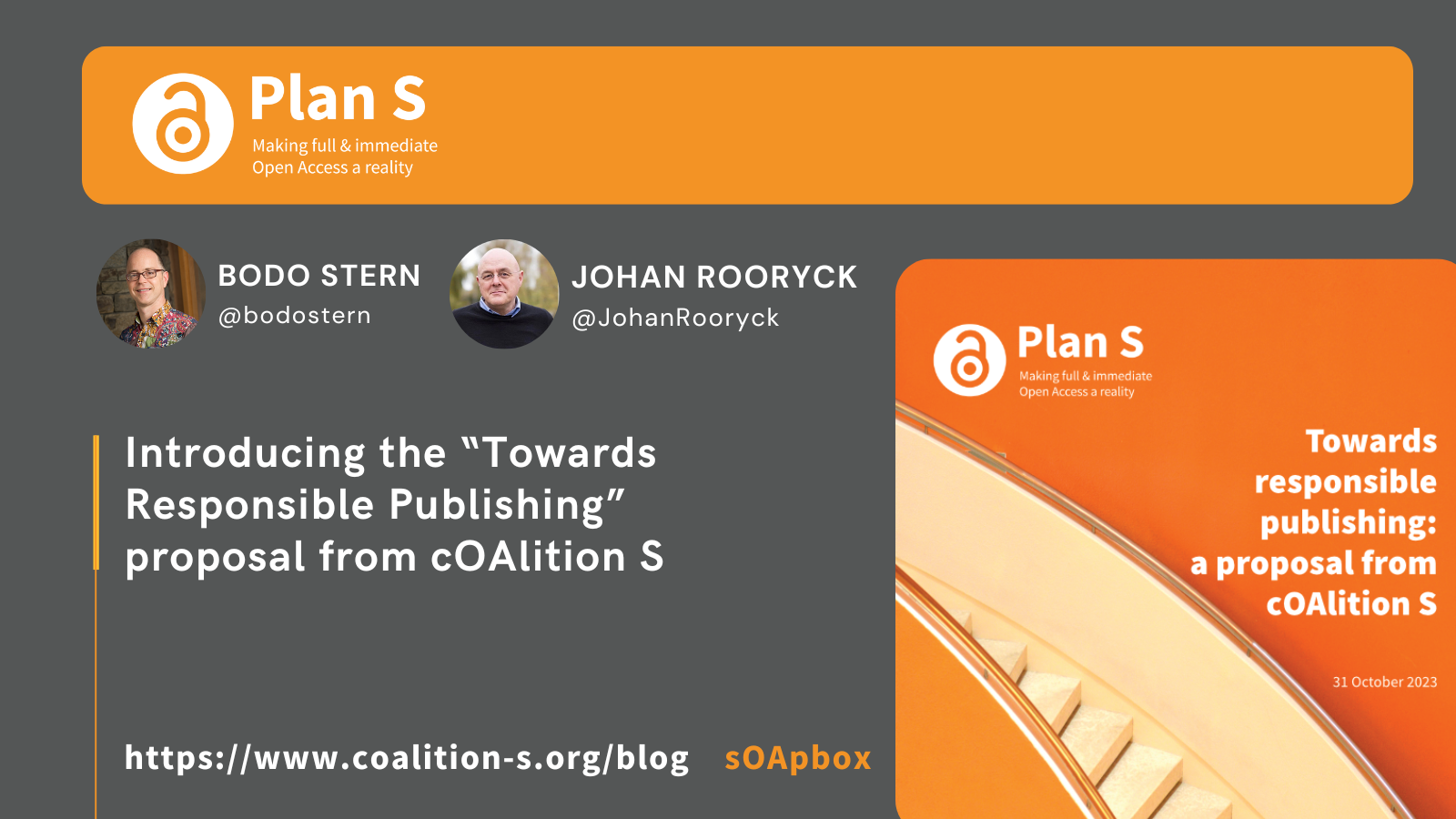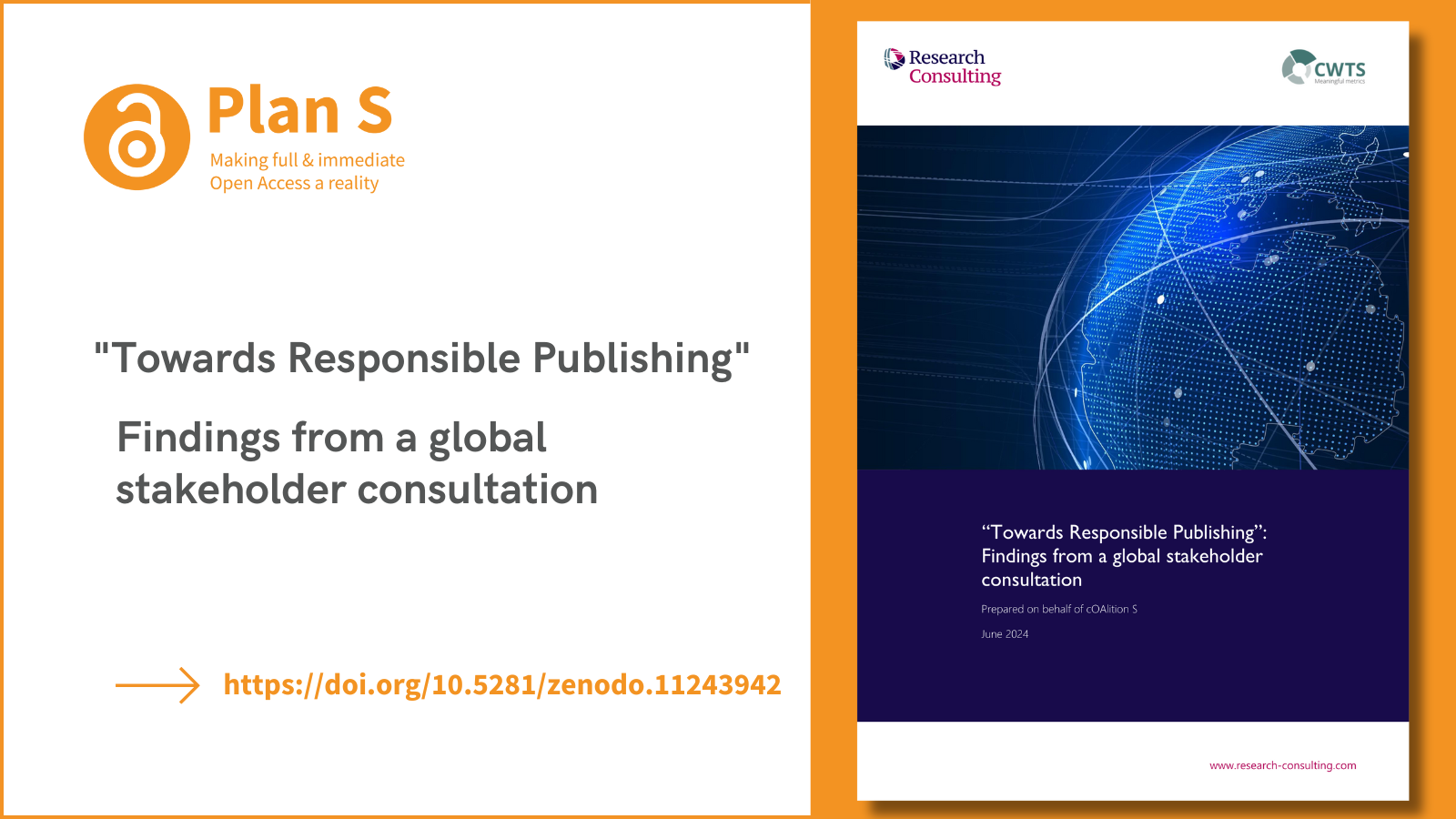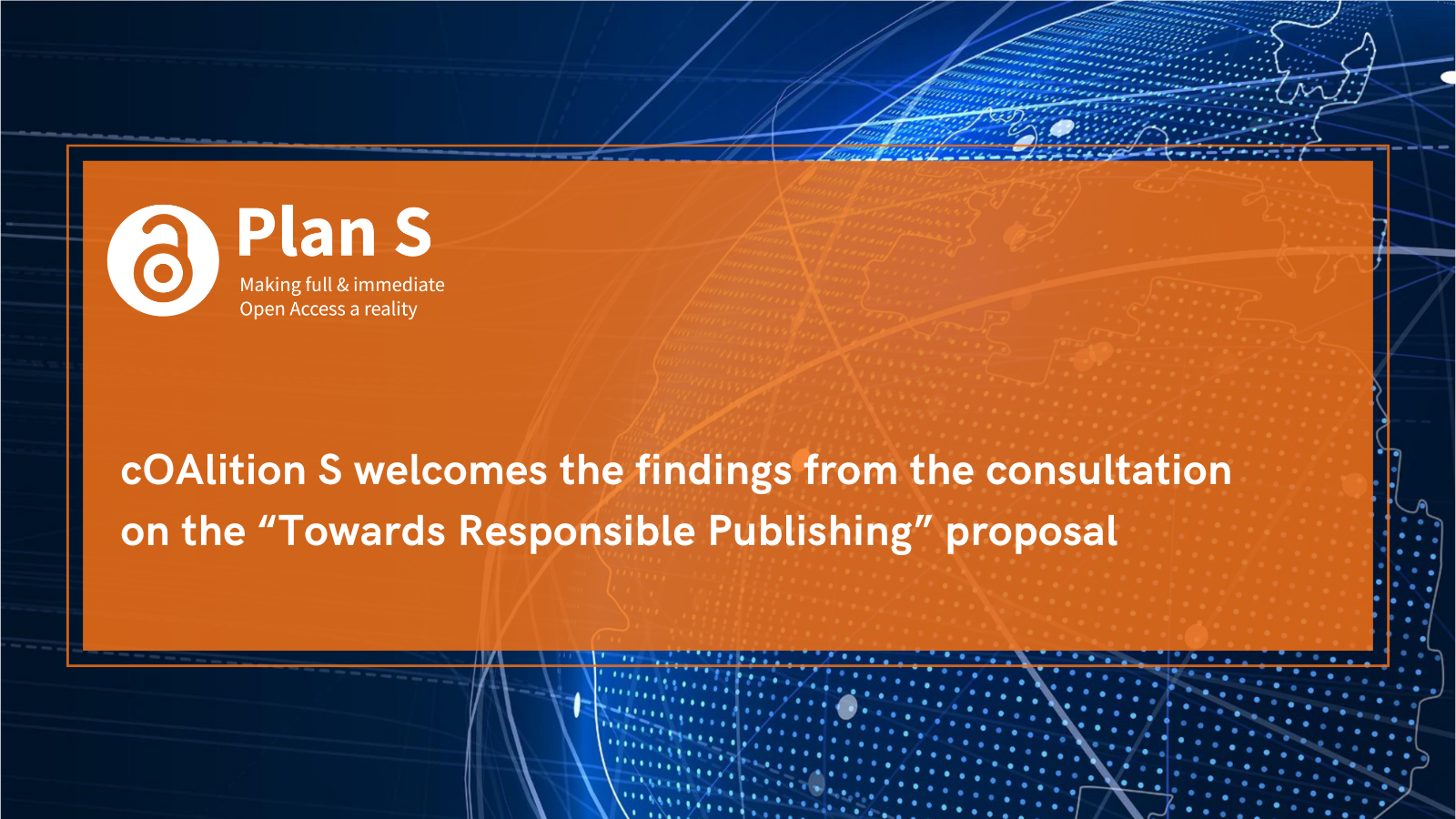Seeking input from the research community to establish a community-based scholarly communication system
Why discussing Responsible Publishing is important
In the five years that have elapsed since the publication of the Plan S principles, the move towards full and immediate Open Access (OA) has become global and irreversible. However, academic publishing practices are not keeping up with rapid advances in the way science is performed, openly disseminated, and used. This disconnect increasingly threatens the goal of universal OA for research outputs.
The COVID pandemic has illustrated the need for faster and more efficient publishing models. The traditional publishing system was simply too slow to disseminate critical and urgently needed scientific information on SARS-CoV2. In response, scholars all over the world are adopting new publishing practices to improve dissemination and peer review of new research findings. Researchers are increasingly sharing articles ahead of peer review and are starting to participate in open peer review of such author-shared articles. In addition, research institutions and researchers, for example in Latin America, have championed innovative models, referred to as ‘diamond’ publishing, that offer scholar-led publishing services that are free to authors and readers.
These developments are forcing funders and other stakeholders – especially university libraries who procure publishing services on behalf of their researchers – to re-think how best to support the dissemination of research in a responsible, equitable and sustainable way.
What does our proposal include?

In our draft proposal, we propose a vision and a set of principles that a future scholarly communication system should aspire to, along with a mission that enables research funders – in collaboration with other key stakeholders – to deliver this.
For such a scholar-led system to be successful, it will need broad support from the research community. To understand if our proposal resonates with the community of researchers, we embark on a consultative process, with support from Research Consulting Limited in partnership with the Centre for Science and Technology Studies (CWTS). This process offers researchers the opportunity to voice their opinions and contribute to the development of a proposal that serves their needs. The consultation will run from November 2023 until April 2024. Based on the feedback through this consultation, a revised proposal will be developed for the cOAlition S funders to consider in June 2024.
Related resources
